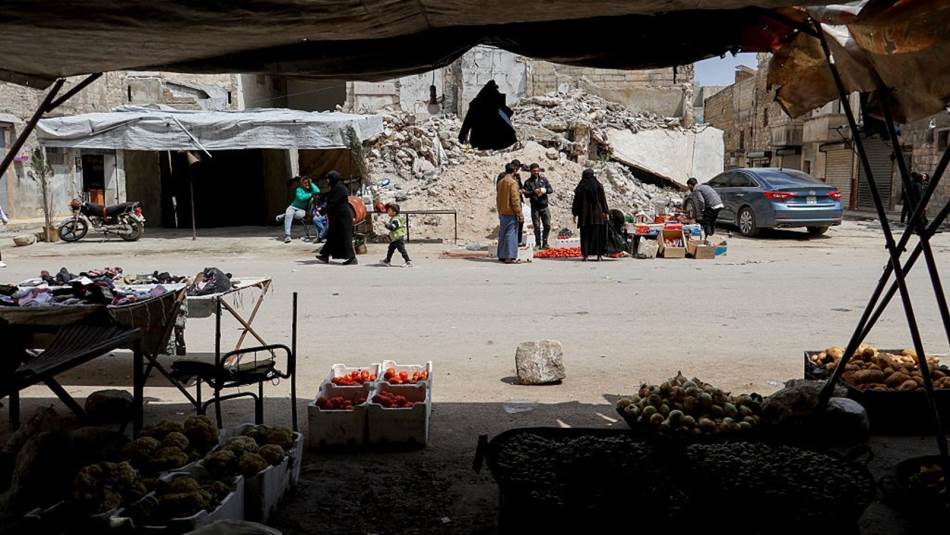Any discussion of comprehensive reform in Syria—whether political, economic, or social—must begin with the creation of a conducive environment for change. At the heart of this is the government’s ability to maintain the public trust it earned in the immediate aftermath of liberation, particularly through its repudiation of sectarian rhetoric and its commitment to criminalizing acts of retaliation. The true test now lies in translating these principles into concrete measures—prosecuting violations wherever they occur to prevent their repetition or exploitation by forces seeking to derail Syria’s transition from Assad’s devastated state to a nation governed by and for its people. In short, the first signs of meaningful reform must emerge from Syria’s internal reality, not its international image.
Western sanctions undoubtedly present formidable barriers—ones that far exceed the Syrian government’s current ability to navigate. Their economic toll continues to mount, exacerbated by the cumulative devastation of Assad’s war on cities, communities, and vital industries. Yet Syrians are demonstrating a remarkable capacity for resilience and innovation. Across the country, citizen-led initiatives and economic alliances are breathing life into the medical, banking, industrial, and commercial sectors. While sanctions typically deter investment, many Syrians today are pushing back against fear—liberating their economy from the grip of paralysis and the shadow of failure.
One powerful example is Syria’s industrial revival, which carries deep societal and political significance beyond its economic function. In this context, the long-debated dilemma—whether to prioritize lifting sanctions or pursue political reform—appears to dissolve. The two are not mutually exclusive, and the momentum for one often fuels the other.
When sanctions restrict the government’s financial and monetary functions and choke off investment essential to job creation and reconstruction, they undermine the very foundations of peacebuilding. They also stall the economic empowerment of society. Without alleviating these constraints, Syrians are denied even a momentary reprieve from the enduring burden of war. Social ruin, after all, is no less costly to repair than physical devastation.
It follows, then, that the reform agenda must begin by removing the barriers that prevent the government from performing its core duties—duties that transcend politics. Chief among these is lifting the nearly 90 percent of Syrians now living in extreme poverty. Left unaddressed, this will drag the country deeper into collapse. In this light, lifting sanctions emerges as an urgent priority—not as a political concession, but as a prerequisite for empowering the Syrian people to live with dignity, rebuild their homes, and meet their essential needs with consistency and autonomy. This extends beyond humanitarian aid toward building a productive, sustainable economy.
Calls by Western actors to monitor the Syrian government’s performance as a guarantee of political rights ring hollow unless preceded by tangible efforts to support recovery and create the conditions for Syrians to return home. Without this, such calls amount to little more than a strategy to keep Syria mired in devastation, dependency, and instability—especially while the country remains under Israeli bombardment, deepening the scars left by the Assad regime.
Syrians today face a triad of urgent priorities—economic recovery, civil peace, and political reform—none of which can be pursued in isolation. Economic revival depends on stability. Reform depends on economic viability and investment. And all of it rests on mutual trust between the state and its citizens—trust that can only be guaranteed by a genuine process of transitional justice. These are not separate tasks, but parts of a single equation. A stable Syria will emerge from the sum of these elements; subtracting any one of them leads to collective failure.
In a promising development, the United Nations has proposed a practical workaround by offering to mediate the release of Syria’s frozen funds held in European and Arab banks. This step effectively weakens the rationale behind continued Western sanctions. As economist Mohammad al-Shaer noted, “It’s a solution that circumvents the sanctions and eases European concerns about how the funds would be spent.” This opens a path—not just for addressing sanctions, but for unlocking comprehensive solutions to Syria’s crises, including strengthening social security and reaping the benefits of renewed economic openness.
This article was translated and edited by The Syrian Observer. The Syrian Observer has not verified the content of this story. Responsibility for the information and views set out in this article lies entirely with the author.


